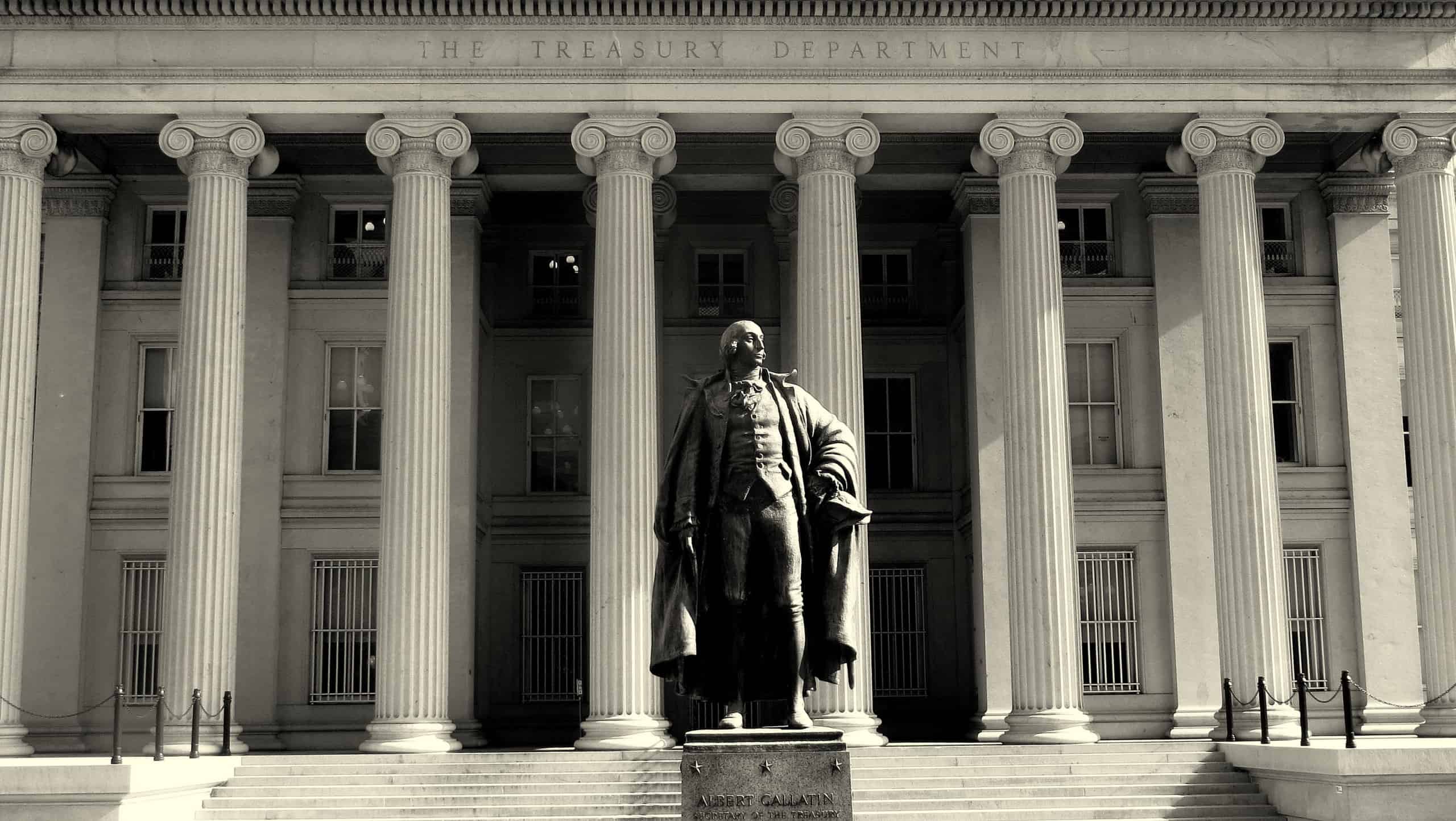
When Aimen Mir left his job as the most senior career official at the Committee on Foreign Investment in the United States (CFIUS) in 2018, he was a hot commodity. A number of law firms were eager for his insights into an agency that has become central to the U.S.-China economic relationship.
Lawyers with Mir’s background at CFIUS, once seen as a bureaucratic backwater, haven’t always been in such high demand. But as concern over Chinese acquisitions in the United States has grown, the work of the committee — an interagency panel chaired by the Treasury Department which reviews inward investment for national security concerns — has become more closely scrutinized.
“In a way, every case is a China case,” says Mir, who landed at Freshfields Bruckhaus Deringer in Washington, D.C and now advises companies on national security matters, including CFIUS.
Yet despite the power CFIUS wields, with its ability to recommend the President blocks or amends Chinese investments, its deliberations remain opaque and difficult to predict, even for those who have direct experience of its workings.
“When you are dealing with the committee, they are often not nearly as clear about what is triggering a concern as the parties would like,” says Jason Chipman, a partner at WilmerHale and former Department of Justice official. “The parties don’t really feel like they know what is triggering concern, and that can be frustrating.”
Parsing CFIUS’s decisions is set to remain a vital task. The Biden administration has already made it clear it will continue to play a major role, particularly as the world’s two largest economies compete over critical technologies. That now includes intervening beyond U.S. borders: In May, CFIUS initiated a review after the Chinese private equity firm Wise Road Capital acquired Magnachip, a South Korean semiconductor company with little presence in the United States.
Chinese investment wasn’t always such a high concern. Around the time of the global financial crisis, several high profile Chinese investments which would likely be problematic today were allowed to go through, such as China National Offshore Oil Corporation’s 2010 investment in Texas’s Eagle Ford shale project and sovereign wealth fund China Investment Corp.’s $5.6 billion investment in Morgan Stanley in 2007.
The panel’s more hawkish approach began during the Obama administration when it blocked the Chinese acquisition of Aixtron SE, a semiconductor company. Activity ramped up under President Trump, when CFIUS opened an investigation into TikTok, blocked a Chinese tech company from buying the dating app Grindr, and stopped Jack Ma’s Ant Group from buying MoneyGram. The panel most commonly examines transactions in sectors such as scientific and technical services, electronic manufacturing, and utilities, according to its annual report to Congress.
Legislation passed in 2018 expanded CFIUS’s scope, increased its budget, and set up mandatory filing requirements for certain transactions. The panel now has the authority to investigate “non-notified deals” — current or past deals which were not originally filed with CFIUS. It examined 117 such deals last year.
“At a bureaucratic level, there are a lot more people working on this,” says WilmerHale’s Chipman. “We have seen CFIUS reach out about past investments. I have even seen it reach out about a deal that was seven years old.”
China-related deals are driving much of CFIUS’s increased workload, accounting for the biggest source of notices in each year from 2018 to 2020. Meanwhile, Chinese direct investment in the U.S. has dropped to $7.2 billion in 2020 from a peak of $48 billion in 2016, according to Rhodium Group data — although that may also be related to broader U.S.-China tension and a decline in the number of Chinese companies making outbound investments during the Covid pandemic.
China will likely remain an important focus for CFIUS. Even where potential buyers in the U.S. are European, the committee often asks about their China connections, lawyers say. The committee also commonly scrutinizes even very small Chinese investments, with minority stakes now coming under its purview.
Law firms are responding by staffing up. “There is much higher demand for CFIUS expertise,” says Timothy Keeler, a CFIUS lawyer at Mayer Brown and former USTR and Treasury official. “Now everybody is saying they can wear a CFIUS hat. If they are handling a transaction, they don’t want to lose the CFIUS part.”
There is much higher demand for CFIUS expertise… Now everybody is saying they can wear a CFIUS hat. If they are handling a transaction, they don’t want to lose the CFIUS part.
Timothy Keeler, a CFIUS lawyer at Mayer Brown and former USTR and Treasury official
And firms are willing to pay a premium to people like Mir, who have done CFIUS-related work in government. “CFIUS lawyers’ market value has increased by 50 percent,” says Dan Binstock, a partner at recruitment firm Garrison & Sisson. “It used to be an optional practice, but now it is necessary.”
Even the most experienced CFIUS lawyers find it hard to understand the panel’s thought processes, however. That may be in part because the panel often has to rely on classified information. “CFIUS works best when it is quiet,” says Sarah Bauerle Danzman, an assistant professor at Indiana University Bloomington and a former advisor to CFIUS.
“If information came out while a transaction was in process, it could move markets,” she adds. “It could also inject more politics, like Congress piling on and putting pressure on the committee.”
But some think the panel should find a middle path. “It is not an easy thing to improve, but there is so little reporting about the justifications for their decisions,” says Martin Chorzempa, a research fellow at the Peterson Institute for International Economics. “I think there should be more transparency around the factors that come into reviews.”
The U.S. is not alone in its attempt to strengthen investment screening. The EU, Japan, and Australia have all set up national security processes in recent years, largely in response to Chinese investment.
“It is not surprising that the U.S., as well as other countries, have put in place new investment screening systems,” says Bauerle Danzman. “They are responding to a very real national security threat.”
But CFIUS, she adds, should not be thought of as a front line defense. Instead, the government should prioritize strengthening regulatory measures like export controls and general data protection laws. Those mechanisms are preferable, she says, because they apply to every company, not just the transaction at hand, and are more transparent.
“CFIUS is supposed to be a tool of last resort,” Bauerle Danzman says. “The best way to reform CFIUS is to figure out what are the things that create these national security problems, and solve them earlier, before they get to CFIUS.”

Katrina Northrop is a journalist based in Washington D.C. Her work has been published in The New York Times, The Atlantic, The Providence Journal, and SupChina. @NorthropKatrina



